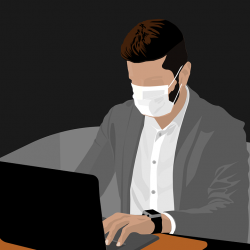To provide the best experiences, we use technologies like cookies to store and/or access device information. Consenting to these technologies will allow us to process data such as browsing behaviour or unique IDs on this site. Not consenting or withdrawing consent, may adversely affect certain features and functions.
The technical storage or access is strictly necessary for the legitimate purpose of enabling the use of a specific service explicitly requested by the subscriber or user, or for the sole purpose of carrying out the transmission of a communication over an electronic communications network.
The technical storage or access is necessary for the legitimate purpose of storing preferences that are not requested by the subscriber or user.
The technical storage or access that is used exclusively for statistical purposes.
The technical storage or access that is used exclusively for anonymous statistical purposes. Without a subpoena, voluntary compliance on the part of your Internet Service Provider, or additional records from a third party, information stored or retrieved for this purpose alone cannot usually be used to identify you.
The technical storage or access is required to create user profiles to send advertising, or to track the user on a website or across several websites for similar marketing purposes.
 Companies are searching for ways to reinvent the office and give employees reasons to return to their workplace and a new report by JLL says the focus must be on the workforce. The report, Reimagine: the new future of work to shape a better world predicts that the future of work will involve companies prioritising the health, wellness and mental well-being of employees. More →
Companies are searching for ways to reinvent the office and give employees reasons to return to their workplace and a new report by JLL says the focus must be on the workforce. The report, Reimagine: the new future of work to shape a better world predicts that the future of work will involve companies prioritising the health, wellness and mental well-being of employees. More →





 Employee engagement levels may have actually improved during the COVID-19 pandemic, claims a recent survey undertaken by intermediary
Employee engagement levels may have actually improved during the COVID-19 pandemic, claims a recent survey undertaken by intermediary 
 According to
According to 
 Women taking maternity leave collectively lose out on £3.2bn worth on earnings, a fall of nearly half their average annual salary, claims new research from
Women taking maternity leave collectively lose out on £3.2bn worth on earnings, a fall of nearly half their average annual salary, claims new research from 
 Companies are facing complex performance challenges as the COVID-19 resurgence heightens the need to reinvigorate employee engagement.
Companies are facing complex performance challenges as the COVID-19 resurgence heightens the need to reinvigorate employee engagement. 




 New research from
New research from 


 With current government advice encouraging all those who can work from home to do so, it’s no surprise that Britain’s businesses and employees are navigating a new normal. New research from
With current government advice encouraging all those who can work from home to do so, it’s no surprise that Britain’s businesses and employees are navigating a new normal. New research from 
 A new model of competitiveness devised by academics at
A new model of competitiveness devised by academics at 









November 11, 2020
Burnout, stress and disconnection are now our most urgent workplace mental health issues
by Catherine Flynn • Comment, Flexible working, Wellbeing